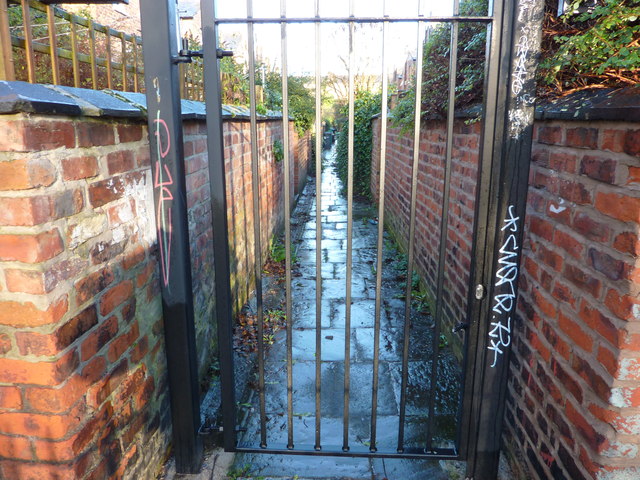Gambling Behaviour In Great Britain
As part of its ongoing Treatment Needs and Gap Analysis work, GambleAware has today (20 October 2020) published new research undertaken by YouGov which explores the impact of the Covid-19 pandemic and first few months of lockdown up until May on gambling behaviour and gambling harm across Great Britain.
The Gambling Commission has published further data showing how the Covid-19 period has impacted gambling behaviour in Great Britain. The data reflects the period between March and August. This report provides information about gambling behaviour in Great Britain using data combined from the Health Survey for England (HSE) 2016, the Scottish Health Survey (SHeS) 2016 and the Wales. An economic and social review of gambling in Great Britain (Published Dec 2013) Professor David Forrest, University of Salford. Problem and pathological gambling: a conceptual review (Published Dec 2013) Professor Paul Delfabbro, University of Adelaide. COVID-19 pandemic and lockdown on gambling behaviour and gambling harm. The first wave of the study was conducted in two phases in October 2019, and explored usage of and demand for treatment, advice or support, among gamblers and affected others. In Phase 1, YouGov surveyed a nationally representative sample of 12,161 adults in Great Britain.



The key findings are set out as follows on GambleAware’s press release that you can download below, together with the full research report):
- New research commissioned by GambleAware and undertaken by YouGov in May 2020 reveals that approximately half (52%) of gamblers say they gambled about the same amount as they would normally during early lockdown from March to May.
- Meanwhile one in five (20%) problem gamblers (defined as those with a Problem Gambling Severity Index (PGSI) score of 8+) reported that they gambled more during the initial months of lockdown. Approximately half (52%) of those saying they gambled more cited ‘relieving boredom or for something to do’ as a reason for doing so.
- The research showed an overall reduction of 10 percentage points in gambling participation between October 2019 and May 2020. The exception to this trend is online casino games which saw an increase from 1.5% to 2.3% during the same time period.
- The report revealed a number of barriers to accessing treatment, including lack of awareness of support available and the stigma attached to gambling disorder. GambleAware is working to increase awareness of the treatment and support available for those with gambling disorder and continues to develop referral routes into the National Gambling Treatment Service.

The “Conclusions” section of the report states as follows:
The study showed an overall pattern of a reduction in gambling between October 2019 and May 2020. Participation in virtually all activities was significantly lower in the May 2020 survey. There was a modest reduction in the overall proportion qualifying as a PGSI 1+ gambler, but also considerable change between scores and categories among individuals. Close to half of previous 1+ gamblers had gone down to a score of 0 or stopped gambling, and two thirds showed some reduction in their PGSI score. However, there was change in both directions: some gamblers with a previous score of 0 had moved into the 1+ category, and some non-gamblers had started gambling.
These changes cannot be definitively linked to the lockdown since some natural change would anyway be expected over a six-month period. Further research could beneficially explore the extent and patterns of change in PGSI scores over time in normal conditions, outside the context of the lockdown. However, when taken in conjunction with the findings specifically pertaining to lockdown, which also suggest an overall decrease, it is reasonable to conclude that some of the changes observed are the direct result of the COVID-19 pandemic and lockdown.
Most gamblers said that compared to normal, they gambled about the same amount or less during lockdown. For many gamblers this decrease was situational, with many attributing the decrease in their gambling frequency to liking different types of gambling which were not possible during lockdown e.g. sports betting or preferring to physically gamble in betting shops. Therefore, the decrease will not necessarily be sustained. A much smaller proportion of gamblers reported gambling more during lockdown, and among this group, most said this was due to relieving boredom or for something to do, followed by the prospect of winning big money. Repeating a study of this nature in the future could give insight into the impact of easing lockdown restrictions on gambling behaviour or explore the impact of stricter restrictions (e.g. a potential second lockdown).

Some gamblers mentioned that they gambled less due to having less disposable income due to work-related reasons (e.g. due to being furloughed, made redundant, or loss of business/work opportunities) or increased other costs during lockdown. Given the uncertainty surrounding both national and personal economic circumstances, it would be interesting to consider whether this becomes a greater factor in gambling behaviour going forwards.
Commenting on the research findings, Sian Griffiths, Deputy Chair of GambleAware, has said:
The findings published today show there is a concerning lack of awareness and use of the gambling treatment and services which exist to provide support and care. While gambling rates seem not to have increased during lockdown, it is alarming that gambling participation amongst those who are gambling are increasing amongst the most vulnerable groups.
With more restrictive measures being put into place across the country to control the Covid-19 pandemic, it is absolutely essential that the Government, National Health Services, and charities across Great Britain continue to work together in partnership to promote and improve awareness of the online and telephone services available for gambling treatment, such as the National Gambling Treatment Service and the National Gambling Helpline on 0808 8020 133.
Speaking during a Bet 2020 online conference, gambling consultant Steve Donoughue made some regulatory forecasts in regards to the UK gambling industry.
After the Gambling Commission put an end to credit card usage for betting purposes earlier this year, Donoughue believes affordability will be the next focus for increased regulation.
He says: “We’ll have affordability; that will be the killer. I think we’ll have increased regulation and basically I think we will end up with a limit to what you can lose per month.
Gambling Behaviour In Great Britain Connecticut
“It’ll be purely arbitrary – it will be say, £500 ($623). If you want to lose more than £500 a month, you will have to go and prove to your gambling operator all about your sanity, your wealth, your source of wealth, probably the size of your feet and what you like to eat on a Tuesday.”
Donoughue believes increased regulation stems in part from a new national health approach towards problem gambling.
He argues that regulators need to avoid placing gambling in the same category as alcohol, tobacco and illegal drugs.
Gambling Behaviour In Great Britain 2016
Donoughue says: “The idea is the more gambling is restricted, the more you will reduce problem gambling.
“There is absolutely no evidence that this is the case. Problem gamblers will then go to the black market, where there is no obligation to protect them.
“There is an 80% chance gambling turns into the new tobacco – with no advertising, real restraints on marketing.
“There is a 20% chance of nationalising gambling – one gambling organisation run by the state and that’s it.”